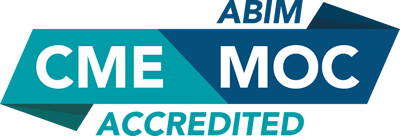
COURSE CREDITS & HOURS
14 AMA PRA Category 1 Credits™14 ACPE Credits
14.0 Contact Hours
14 (part II) MOC points in medical knowledge in the American Board of Internal Medicine's (ABIM) Maintenance of Certification (MOC) program
3 Hours of Pharmacology for Nurse Practitioners
COURSE FEES
TARGET AUDIENCE
PROGRAM PURPOSE
- Overview of Mass Casualty Incidents (MCI)
- Determine the general factors relevant in an MCI, be familiar with the definition and goals of terrorism, the history of terrorist attacks, and the other most common types of disasters
- Pre-Hospital MCI Management
- Identify priorities (TRIAGE/SORT) of field and early hospital management
- Discuss the function and structure of pre-hospital triage and Incident Command
- Discuss their own management system and together we will determine strategies
- MCI in natural -induced and man-made disasters: Management process
- Discuss the basic principles of how to treat different injuries in a mass casualty situation where you might possibly have 20-50 injured or more in your hospital at the same time
- Analyze the gaps in equipment, personnel, and surge capacity in order to return to hospitals to update personnel
- Non-Conventional Disasters
- Describe anticipated radiological, nuclear, chemical and biological scenarios
- Be familiar with the terms and concepts that are unique to the medical management of mass casualties, including triage, surge capacity, decontamination, and critical mortality
- Ethical Challenges, Dilemmas and PTSD
- Assess methods for psycho-emotional support and care of disaster casualties, their families, and responders
- Consider personal experiences and lessons learned as well as results from longitudinal research studies investigating medical teams in Israel
- Translating COVID-19 pandemic surge to MCI surge
- Apply the lessons learnt from the COVID-19 pandemic and at the cost of millions of lives lost to be better prepared for future pandemics
- Management of Heart Failure
- Apply evidence based therapies for patients with heart failure with reduced and preserved ejection fraction
- Optimizing the Management of LDL-Cholesterol for Primary and Secondary Prevention
- Improve evidence based cholesterol management for primary and secondary prevention.
- Moving Beyond LDL-C: Contemporary Approach to Triglycerides, HDL-C, and Lipoprotein(a)
- Apply updated evidence to optimize management of HDL-C, Triglycerides and Lp(a)
- Prevention of Cardiovascular Disease -- Focus on Cardiometabolic Therapies
- Understand and apply SGLT2 inhibitors and GLP1 RA in clinical practice.
- Management of Valvular Heart Disease and Atrial Fibrillation
- Understand the role of valvular intervention and apply evidence regarding anticoagulation in patients with atrial fibrillation.
- Clinical Cases in Cardiology
- Familiarize yourself with common clinical scenarios for risk stratification, management of heart failure, valvular disease


























































